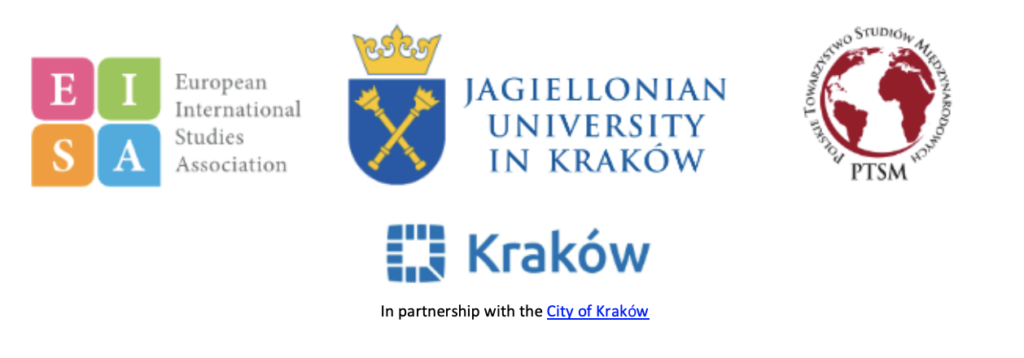
Recently, KGRI Project Assistant Professor Tobias Burgers participated in the European International Studies Association’s annual conference: The European Workshop in International Studies (EWIS), hosted this year in Krakow, Poland on June 26-29, 2019. Among the leading conferences on the continent, it hosted a wide array of European and global researchers, with this year’s theme: The Future of International Relations In The Next 100 Years.
Mr. Burgers presented two papers at the workshops that focused on information warfare and its implications for international security relations and conflict. The first paper, part of Prof. David Farber’s A Silent Spring for Cybersecurity research project at Keio University Cyber Civilization Research Center, focused on cyber conflicts and its escalatory potential. In his presentation, Mr. Burgers made the case on the instability of international cyber conflict, as well the absence of established rules and norms, yet the increasing tendency to seek to destroy physical targets through cyber means, there is an increased risk that a cyber conflict spiral could develop with implications beyond the digital domain into the physical realm. In this Mr. Burgers argued that cyber conflict has the potential to serve as catalysator of instability, increasing security tensions in the East Asian region. He made the case for a broader debate on establishing and developing regionally accepted norms, rules, and red lines, as well as analyzing what de-escalatory measurements could be formed.
His second paper discussed critical security studies (CSS) in an age of rapid development and integration of new(er) technologies into the military domain. Mr. Burgers argued that CSS faces two major and paradoxical problems when it comes to further future research on these topics, providing major obstacles for the effectiveness of its research base. First, the speed of technological development versus the cycle of research and publishing is deeply disproportionate. In this, there is a significant gap between the current state of technological development, and the current state of academic research on it, posing a significant set of problems on how to critically engage in research on these subjects. Second, he identified an increasing problem of access to information: Technological advancement has reduced the human role in conflict and increased their distance to the area of conflict. This has meant that the observers -e.g. journalists – are finding it increasingly difficult to gain access to information. They have come depended on those directly participating in the conflict – e.g. militaries – as the main provider of sources of information. Yet such actors who have demonstrated a limited interest in openness and providing unbiased information. The combination of these problems poses a serious risk for the field of critical security studies effective and critical research.
Besides discussions over the above topics, the workshop also debated Russian information warfare tactics, the age of AI and big data and its impact on information warfare, among others. An agreement was reached to explore if a standing group on information warfare can be formed that would meet annually to discuss information warfare concepts and to compare regional information warfare concepts and developments.
 Contact us
Contact us